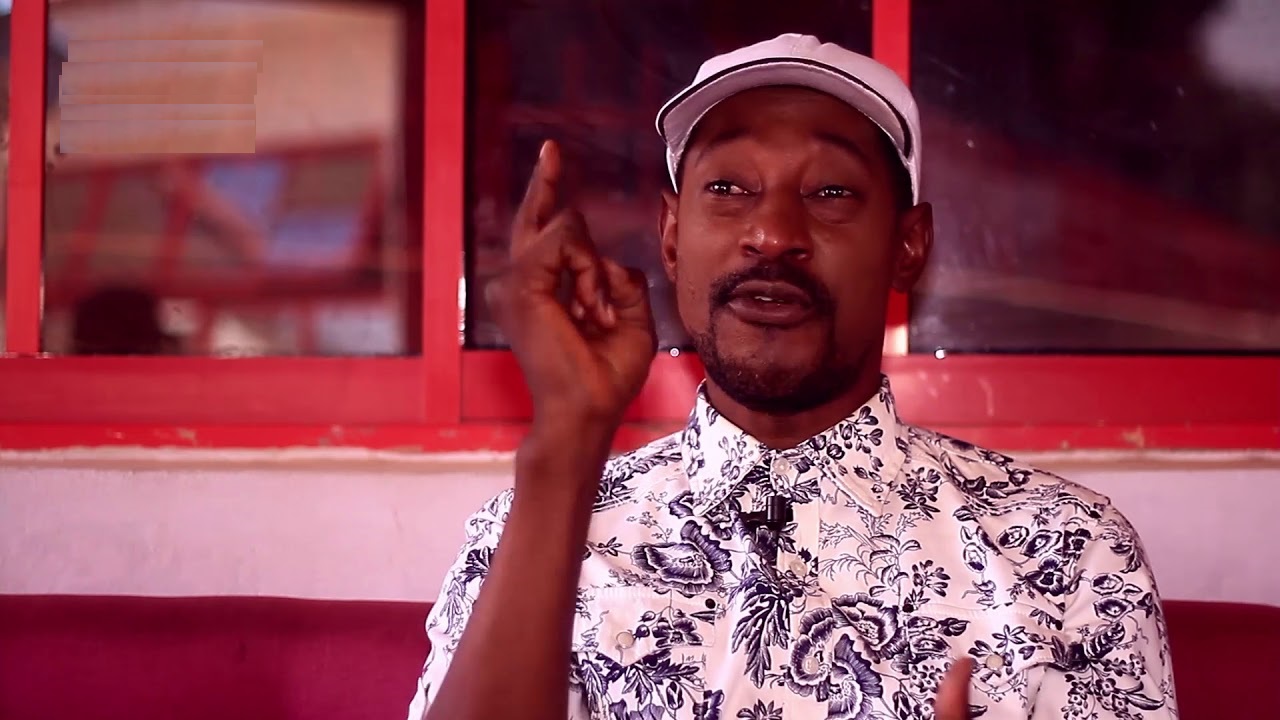Akume Akume is a Nollywood actor, model, stylist and musician. He is also a film brand ambassador for several outfits. In this interview, the Benue State-born actor says he does not look down on any role, especially if well paid.
Weekend Magazine: How did your acting career begin?
- OML revocation impasse: Reps doubt Addax’s claims
- Black Friday as army chief, others die in plane crash
Akume Akume: I started acting – TV and film, professionally from NTA Jos in 1996. I was practically termed the latest NTA prodigy and baby, and I was celebrated because I came into the scene just when Saint Obi was leaving Jos for Lagos. So, I was kind of the ‘new kid on the block’. I played the leading role in the Telefest drama for NTA Jos that year. Then, I delved into Nollywood proper with films like ‘Return to Kazondi’, ‘Kabila’, ‘After school hours’ and many more. All thanks to great producers and directors who believed in the acting prowess and ability of one tiny slim boy then.
WM: You appear to have been off the screen for a while. Why?
Akume: Have I? No, I haven’t really been off the screen. I have only been off the ‘every day home videos’, but not off screen. The period when people thought I was off screen, I was actually doing more of cooperate movies. That is movies for DSTV, Mnet projects, Iroko TV projects, and recently, a Star Times project by Toka Mcbaror.
I have also done UNICEF and USAID projects which pay more than the everyday home video. By and large, I have not really been off screen. Nonetheless, for my fans, I want you to know that Akume Akume will endeavour to come back on mainstream films, that is for those who say they have not been seeing me on the screen these days.
WM: Tell us about your latest productions
Akume: Maybe the phrase should not be ‘latest productions’. This is because I have actually been making movies back-to-back. Recently, I joined the league of Method Actors International, when I played the role of the Archbishop G.G. Ganka of the Catholic Church in their production. It was a very demanding and challenging role; that story is for another day.
Meanwhile, lately, I have toured the North Central zone (Middle Belt) making movies, and I was made the Middle Belt Nollywood Ambassador. From March last year till now, I have been involved in over 15 new pertinent movies. We also had a shooting in Asaba.
WM: Why were you awarded the brand ambassador, and what other brands ambassador have you been awarded?
Akume: It was after doing a couple of Gbagyi movies that I was made the ambassador, though my people of Benue State unofficially refer to me as a youth ambassador. I was also the Face of Nigeria (ambassador) @ 50, and the Face of Fighting Prostate Cancer Nigeria.
Presently, I have been nominated as one of the Benue artistes for a major advertising, and might end up being third brand ambassador. Keep your fingers crossed.
WM: You are also into comedy. How do you balance comedy and acting?
Akume: Firstly, I don’t ever want to be called a comedian. Anyway, they both go hand-in-hand, but I am aware that whenever I delve into comic roles in films, my fan base increases. Now, people have a funny name they identify me with – ChoCho. But I still prefer to be called an actor.
WM: What are the roles you love to play most in films, and why?
Akume: I love to play challenging roles, I love method acting, I love any role that challenges me. That works for me.
WM: Apart from fame and popularity, what other things have acting done for you?
Akume: Apart from popularity and fame, acting has opened great doors for me. But there are also some negative sides. For instance, you can’t do what others do normally without tongues wagging and so on. This is because we are public figures. In a nutshell, there are countless good and bad stuff which come with popularity.
WM: What are your most challenging moments in your acting career?
Akume: Every bit of the acting process is still challenging. Sometimes, there are issues of tribalism, unnecessary beefing etc. But I have been involved in broadcasting, film and theatre, fashion and modeling, and I have been used to all of that. So, challenges are peculiar, and are part of the growing process.
WM: How do you describe or compare your actual character and the roles you play in films?
Akume: Well, I always want people to know that first of all, I am a dual kind of person. I have Sanguine Akume and a Melancholy Akume in me. The sanguine is the entertainer. Then the melancholy is the creative, the sensitive and the intelligent. Melancholic character helps me get in and out of different roles. So, when I am off set, people shouldn’t expect to see the boisterous Chocho (that’s my main comic character – the Tiv guy), and they should not expect to meet that so called funny guy. That is why I love to tell people that I am not a comedian.
WM: Are there times when you reject any offer because you are not comfortable with the script?
Akume: I am not someone who looks down on roles, but I have lately been telling producers and directors that I am grown now for only leading or lead roles. Remember though that the lead character in a movie can be the gateman. Recently, in my state, they call me to play supporting roles to help boost upcoming actors, but I told them that if I must do so, they must still pay me the equivalent of a lead character fee. However, there is no role I can’t play in films, especially if I am well paid. If I ever turn down a job, it must be for financial purposes or the script is outright stupid.
WM: Many people believe that the Nigerian film industry is not living up to expectation. Do you think so?
Akume: My answer to them is: they should keep quiet! You know critics are often spectators who are never doing anything.
WM: Are Nigerian script writers/producers adapting Nigerian novels?
Akume: Yes, they are trying. But they could do better. In fact, they should do more. The problem sometimes is that these days everybody claims to have story.
WM: Jos, where you begin your career, is believed to have abundant talents like actors, musicians, entertainers, literary artistes, sportsmen and women. But those talents are not being properly harnessed. What is the problem?
Akume: There is so much to say about this, but I would rather be careful because as much as I am associated with Jos, I don’t see myself as ‘a Jos actor’. I see myself though as a Middle Belt/Nigerian Nollywood actor. In Jos, there is the non indigene factor, witch hunting and back biting, but most of all, lack of investors. The whole gist of Plateau being the cradle of entertainment is all past glory and over hyped stories.
Didn’t we all leave Jos for greener pastures? I can categorically state that I am one actor that rose on the ladder of success from Jos in Nollywood that is still around Jos. And 80 percent of my films are shot outside Jos. Isn’t it funny?
The Jos thing isn’t encouraging and I really don’t want to talk about it even though it is my constituency so to speak. However, I am still so proud of NTA Jos, PRTV Jos and some Jos-based producers – most of whom have left Jos. They all spurred and encouraged my growth.
WM: To what extent do you think the film industry can stimulate national growth?
Akume: My answer is to the highest extent – 100 percent. Do you know that as at 2019, Nollywood was the second highest revenue source for Nigeria, after agriculture and before oil? All we need is for the government to invest more in the industry. Know, however, that there is no business like show business.
WM: Many people who are into acting never went to film institutes or studied any course related to acting. Do you think it has adverse effect on the film industry?
Akume: I would say Yes and No. That’s what it used to be back then, especially because people who wanted to study Theatre Arts were forced by parents to study Law and other courses. So, after they graduate to please their folks/family, they go back to their first love which is acting. I am a typical example. But with film schools/institutes here and there now, a lot of people still go back to fine tune their talents. More so, I personally have noticed that most film school graduates are more attracted to the technical aspects of film, like cinematography and all that. At the end of the day, film institutions churn out more technical persons than real actors. But it is getting better though.
WM: What are your future projections in your acting career?
Akume: My future projection is to ‘bring Hollywood to Nollywood’. That is the level where Nollywood can be equated to Hollywood, master class, resource theatering and more.
WM: What is your advice to upcoming youths who have interest in acting?
Akume: After being talented, they should work hard, calm down and be low-headed.

 Join Daily Trust WhatsApp Community For Quick Access To News and Happenings Around You.
Join Daily Trust WhatsApp Community For Quick Access To News and Happenings Around You.

